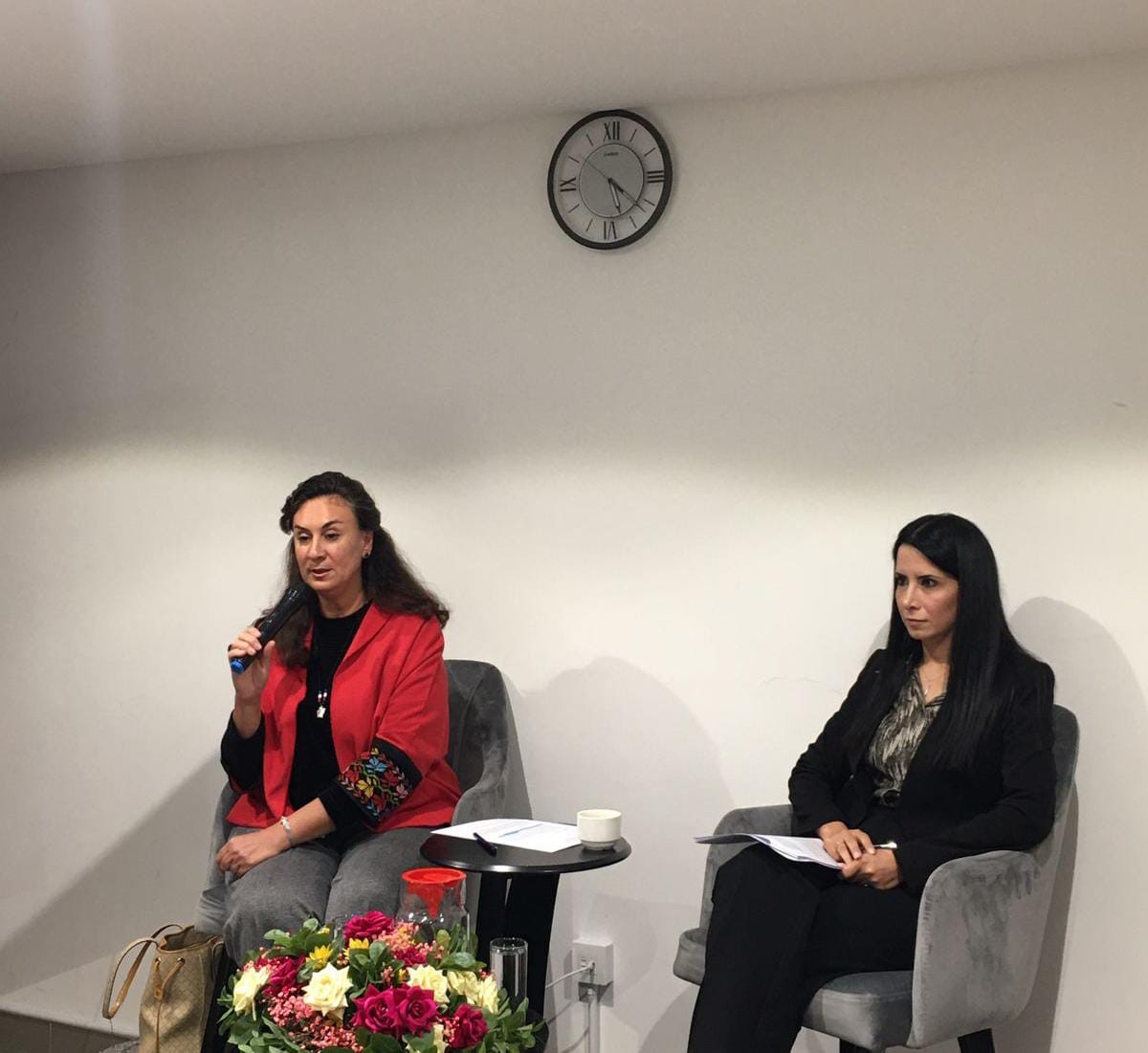The controversy surrounding the Rafah border crossing, the only corridor connecting the Palestinian Gaza Strip to the outside world, continues, with the crossing being constantly disrupted since the escalation of Israeli attacks on Gaza, amid major warnings that the crossing could become a route for the displacement of Palestinians from the Gaza Strip to the Egyptian Sinai.
Fears of a new Nakba, the displacement of Gazans to Egypt, and the war waged by the occupation against the Palestinians depriving them of the most basic necessities of life, were among the topics discussed during the seminar: “The Rafah Crossing, Palestinian Refugees, and Fears of Another Nakba”, held by the Arab Renaissance for Democracy and Development (ARDD), on Monday, November 13, 2023, within the framework of the Palestinian Cause program, and within the first group of a series of seminars that will be held later to follow up on, record, and document the developments of the war in Palestine.
Samar Muhareb, Executive Director of ARDD, who moderated the discussion with the participants, said that “there is a real opportunity today to learn, scrutinize, and look at Palestinian history since the 1948 Nakba and understand the events and developments on the scene,” adding: “We all owe gratitude to the martyrs of Palestine because they have shed light on many important issues that require documentation, follow-up, and recording, as well as the need to analyze the past in order to know how we live today.”
For her part, Dr. Aroub Al-Abed, Associate Professor at the Faculty of Graduate Studies in the Forced Migration Program at Birzeit University, and a member of the International Network for the Palestinian Cause, explained in her description of the Palestinian scene today, that the occupation continues its aggression against Gaza in an attempt to exterminate all forms of life in the Strip and forcibly displace its residents, by deliberately targeting residential areas and neighborhoods, convoys of displaced people, and medical service providers.
Al-Abed spoke about the Nakba of 1948, the details of which we hadn’t clearly seen until 1989, after establishing what’s known as a “historical archive”, considering that the Zionists had clear and formulated goals and plans to displace the Palestinians from the beginning through multiple steps, including: (intimidation, killing, starvation, cutting off services, then uprooting and complete destruction), in order to ensure that they do not return to their homes and lands.
Al-Abed revealed that the occupation has always been playing on the principle of “willful migration”, pointing out that the recent events in Gaza did not come out of the blue nor are they random; as the displacement of people is systematic and clear in Zionist policy, especially after 1990 when it engaged in peace processes with neighboring countries, which was a prelude to its expansion in the region economically and politically.
In a detailed context of the situation of Palestinians residing in the Republic of Egypt, the researcher Al-Abed was of the opinion that residents in Egypt are a unique case among Palestinian refugees in various countries of the world, for in addition to the fact that their numbers are the lowest compared to the large numbers in the countries surrounding their country, which they were forced to leave, they live in a situation of “neither refugees nor citizens”, as the Egyptian nationality is only granted to Palestinians under strict conditions, according to the first article of the Arab League resolution issued in 1952, which affirms that ” Arab governments should postpone efforts to settle Palestinian refugees.”
According to Al-Abed, Palestinian refugees in Egypt enjoyed most of the main rights until 1978, when a Palestinian assassinated Egyptian writer Youssef al-Sibai, who was a close friend of the Egyptian President Anwar Sadat. At that time, the Egyptian government revoked all rights previously granted to Palestinians, and few Palestinian refugees currently living in Egypt have acquired Egyptian citizenship.
“Palestinians in Egypt are granted three types of residency: special residency, which is valid for ten years, regular residency, and temporary residency, as most Palestinians residing in Egypt hold temporary residence permits, which are valid for between one and three years, while Egypt is the only Arab host country that requires all Palestinians to renew their residency regularly.” Al-Abed added.
Like other foreigners, Palestinian refugees in Egypt have the right to work, but they find it difficult to obtain work permits, as refugees who wish to practice a profession must have a valid residence permit and obtain a work permit in advance, issued by the Ministry of Labor and Training, according to al-Abed.
Al-Abed warned of the forced displacement that is evident today, as the Nakba of 1948 is still etched in the collective memory of the people of Gaza who express their fears that if they are forced to leave their homes now, they will never be allowed to return, just like what happened to their ancestors.
According to the participants, there is an immediate need to address international public opinion politically and in the media, and to focus on the manufacturing of force to confront the enemy, and to find safe mechanisms for the delivery of aid, as well as not to open the Rafah crossing from both sides so as not to witness new displacement and forced migration, with the importance of the Arab countries emphasizing their political position towards steadfastness and survival of the Palestinians generation after generation, not to acquiesce, to preserve rights, and to adhere to the Palestinian identity.


